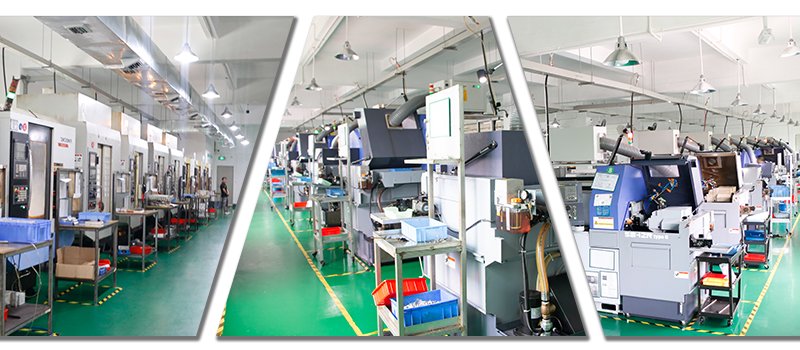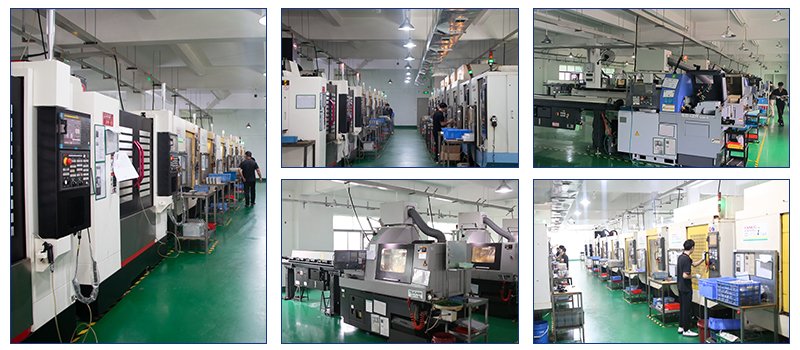When it comes to CNC machining, material selection often determines the success or failure of a project—especially in industries where corrosion resistance is critical. Two commonly used materials, 304 stainless steel and titanium, each offer unique benefits, but their corrosion resistance differs significantly.
At YL-Machining, we frequently work with both materials, and I’ve seen firsthand how their properties can impact machining outcomes and end-use performance. Let’s dive into a detailed comparison to help you choose the right material for your project.
Why Corrosion Resistance Matters in CNC Machining
Corrosion resistance isn’t just about preventing rust. It’s about ensuring that parts perform reliably in challenging environments, such as marine, chemical processing, or medical applications. Poor material choice can lead to:
- Reduced part lifespan.
- Safety risks in critical applications.
- Increased costs from frequent replacements or repairs.
When corrosion resistance is a priority, 304 stainless steel and titanium often top the list. But how do they compare?
Properties of 304 Stainless Steel in CNC Machining
Corrosion Resistance of 304 Stainless Steel
304 stainless steel is a widely used austenitic alloy, prized for its:
- High chromium content (18–20%): Chromium forms a passive oxide layer on the surface, protecting it from rust.
- Nickel content (8–10.5%): Enhances resistance to oxidation and provides strength.
This combination makes 304 stainless steel resistant to:
- General atmospheric corrosion.
- Mild chemical exposure.
- Freshwater environments.
However, it struggles in environments containing chloride ions (e.g., seawater), where pitting and crevice corrosion can occur.
Machinability
304 stainless steel is tougher to machine compared to softer metals like aluminum, but it’s still manageable with proper tooling and techniques:
- Requires sharp carbide tools to prevent work hardening.
- Generates significant heat, necessitating coolants to maintain precision and tool life.
Applications
- Kitchen equipment.
- Chemical storage tanks.
- Automotive exhaust systems.
Properties of Titanium in CNC Machining
Corrosion Resistance of Titanium
Titanium is renowned for its exceptional corrosion resistance, which stems from its:
- Protective oxide layer: Titanium naturally forms a thin, durable oxide film that resists most corrosive agents.
- Low reactivity: Unlike stainless steel, titanium remains inert even in harsh environments.
Titanium’s resistance extends to:
- Saltwater and marine environments.
- Aggressive chemicals, including acids.
- High-temperature oxidizing environments.
Machinability
While titanium excels in corrosion resistance, it presents challenges in machining:
- Heat retention: Titanium’s low thermal conductivity traps heat near the cutting edge, causing rapid tool wear.
- Springback effect: Its elasticity requires precise tooling to avoid dimensional errors.
- Slower feed rates: To minimize heat and maintain surface finish, machining must be done carefully and slowly.
Applications
- Aerospace components.
- Marine structures.
- Medical implants.
Comparing Corrosion Resistance: 304 Stainless Steel vs. Titanium
| Property | 304 Stainless Steel | Titanium |
|---|---|---|
| General Corrosion Resistance | Excellent in mild environments | Exceptional, even in extreme environments |
| Resistance to Chloride Ions | Susceptible to pitting and crevice corrosion | Highly resistant, ideal for marine applications |
| Oxidation at High Temperatures | Good, but limited to lower temperatures | Outstanding, even in oxidizing conditions |
| Chemical Resistance | Moderate resistance to acids and chemicals | Superior resistance to a wide range of chemicals |
When to Choose 304 Stainless Steel
Advantages
- Affordability: More cost-effective than titanium, especially for large-scale production.
- Ease of sourcing: Widely available in various forms and sizes.
- Good machinability: Easier to machine than titanium with proper equipment.
Limitations
- Chloride sensitivity: Not suitable for saltwater or environments with high chloride concentrations.
- Weight: Heavier than titanium, which may be a concern for weight-sensitive applications.
Ideal Applications
Choose 304 stainless steel when your project involves general-use parts exposed to mild corrosive conditions or requires a lower budget.
When to Choose Titanium
Advantages
- Unmatched corrosion resistance: Perfect for demanding environments like marine, chemical processing, or medical use.
- Strength-to-weight ratio: Lightweight yet incredibly strong, making it ideal for high-performance applications.
- Longevity: Titanium parts often outlast stainless steel in harsh conditions.
Limitations
- Cost: Titanium is significantly more expensive than 304 stainless steel.
- Machining difficulty: Slower machining speeds and specialized tools add to production time and cost.
Ideal Applications
Opt for titanium when your project requires exceptional corrosion resistance, strength, and lightweight properties, especially in harsh or critical environments.
CNC Machining Tips for Corrosion-Resistant Materials
For 304 Stainless Steel:
- Use sharp tools: Prevent work hardening by using sharp carbide tools.
- Apply coolant: Reduce heat buildup to maintain precision and prolong tool life.
- Monitor speed and feed: Avoid aggressive cutting to maintain surface integrity.
For Titanium:
- Invest in high-quality tooling: Coated carbide or PCD tools are ideal for minimizing wear.
- Control heat: Use constant coolant flow to prevent overheating.
- Optimize parameters: Lower feed rates and speeds ensure accuracy and surface finish.
At YL-Machining, we’ve mastered these techniques to deliver high-quality parts made from both 304 stainless steel and titanium.
How YL-Machining Supports Your Corrosion-Resistant Projects
At YL-Machining, we understand the unique challenges of working with corrosion-resistant materials. Here’s how we ensure top-quality results:
- Expertise: Our team specializes in machining both 304 stainless steel and titanium, adapting strategies to meet your specific needs.
- Precision equipment: With state-of-the-art CNC machines, we achieve tight tolerances and flawless finishes, even for challenging materials.
- Material guidance: Unsure which material suits your project? We’ll help you weigh the pros and cons based on your application.
Final Thoughts
Choosing between 304 stainless steel and titanium for CNC machining depends on your project’s specific requirements. If cost and general performance are your priorities, 304 stainless steel is an excellent choice. However, when corrosion resistance and longevity are critical, titanium is unbeatable.
At YL-Machining, we help clients navigate these decisions with confidence. Whether you’re producing parts for marine equipment, aerospace systems, or chemical processing, we deliver precision and quality every time.
Let’s Work Together
Ready to start your next corrosion-resistant CNC machining project? Contact YL-Machining today for expert advice and a free quote!







